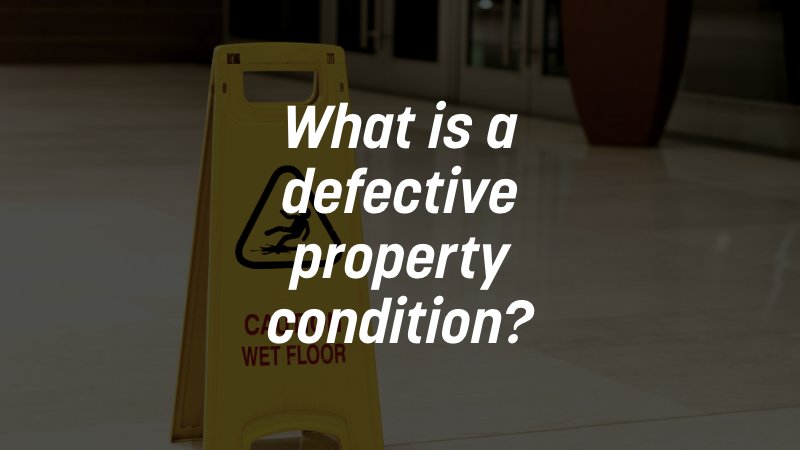Defective property conditions can be found on any premises, public or private. Property defects can pose serious health and safety threats to visitors, especially if they are not obvious to the average person. If you get injured due to a defective condition on someone else’s property in Nevada, you may have grounds to file a premises liability claim against the owner of the property.

What Is a Defective Property Condition?
A defective property condition describes any unsafe or hazardous item, obstacle or circumstance present on a property that poses a risk of harm to people or property. Defective conditions can arise on various properties, including homes, apartment buildings, private properties, commercial properties, workplaces, parking lots, construction sites, schools, restaurants, public spaces and outdoor areas.
Examples of Defective Property Conditions
Defective property conditions can refer to a wide range of issues that may run the risk of injuring visitors. Examples include:
- Broken elevators and escalators
- Broken stairs or handrails
- Cracked or damaged floors or sidewalks
- Dangerous or aggressive dogs
- Defective equipment or machinery
- Electrical hazards
- Environmental hazards
- Inadequate security
- Missing warning signs for potential hazards
- Negligent property maintenance
- Poor lighting
- Slippery or uneven floor surfaces
- Structural defects
- Swimming pools without barriers
- The presence of hazardous substances
Any of these hazards could lead to serious injuries and harm, including slip and fall accidents, dog attacks, drowning incidents, and physical assaults.
Property Owner Responsibilities in Nevada
Visitors who are invited to a property for the owner’s own purposes, such as customers at a business, are classified as invitees and given the highest standards of care. This means property owners have a legal responsibility to inspect and clear their premises of defective conditions and potential injury risks before welcoming invitees. They must also warn visitors of potential hazards.
The second classification of visitor is a licensee. Licensees also have an owner’s permission or legal authority to enter a premises but do so for their own purposes. Examples are social guests and salespeople. Licensees are owed a slightly lesser duty of care than invitees. Property owners must still repair known hazards and post warnings of potential injury risks, but they do not need to inspect their premises for new or unknown hazards.
The third visitor classification, trespassers, are not owed any duties of care by a property owner in Nevada other than a duty not to intentionally cause them harm. However, there is an exception for trespassers who are under the age of 18. Property owners must remedy defective conditions that specifically pose risks to trespassing children. These risks are known as attractive nuisances and can include swimming pools, trampolines and play equipment.
Liability for Injuries Caused by Defective Property Conditions
If a defective property condition results in injury, illness or death, a property owner in Nevada can be held financially responsible or liable for the victim’s losses. Property owners carry insurance policies to pay for accidents that occur on their properties. If the property owner knew or reasonably should have known about the defective condition but failed to remedy it in a timely manner, this can serve as proof of liability for the incident.
For more information about filing a personal injury claim for a dangerous defective property condition, contact a Las Vegas injury attorney at Koch & Brim, LLP for a free case review in Nevada. We can help you access a property owner’s insurance coverage and file a claim to pursue fair financial compensation.